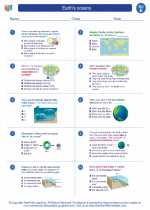Introduction to Elimination
Elimination is a process by which waste and unwanted substances are removed from the body. In the context of biology, elimination refers to the removal of waste products produced by cells and tissues, as well as the removal of harmful substances that have entered the body from the external environment.
Types of Elimination
There are several types of elimination processes in the human body:
- Excretion: Excretion is the process by which metabolic wastes, such as carbon dioxide, urea, and excess water, are removed from the body. The main organs involved in excretion are the lungs, kidneys, and skin.
- Defecation: Defecation is the elimination of undigested food and other waste materials from the digestive system through the rectum and anus.
- Sweating: Sweating is the process of eliminating excess heat and waste products, such as salts and urea, through the sweat glands in the skin.
- Urination: Urination, or micturition, is the process of eliminating excess water, urea, and other waste products from the body through the urinary system.
Importance of Elimination
Effective elimination is crucial for maintaining the body's internal balance and overall health. Without proper elimination, waste products and toxins can accumulate in the body, leading to various health issues and complications.
Study Guide
To understand the concept of elimination better, consider the following study guide:
- Define elimination and its significance in the human body.
- Identify and describe the different types of elimination processes in the body.
- Explain the role of specific organs, such as the kidneys, lungs, and skin, in the elimination process.
- Discuss the consequences of impaired elimination and the importance of maintaining a healthy elimination system.
- Explore real-life examples or case studies related to elimination and its impact on overall health.
◂Science Worksheets and Study Guides Fifth Grade. Earth's oceans
Study Guide Earth's oceans
Earth's oceans  Worksheet/Answer key
Worksheet/Answer key Earth's oceans
Earth's oceans  Worksheet/Answer key
Worksheet/Answer key Earth's oceans
Earth's oceans  Worksheet/Answer key
Worksheet/Answer key Earth's oceans
Earth's oceans  Vocabulary/Answer key
Vocabulary/Answer key Earth's oceans
Earth's oceans  Vocabulary/Answer key
Vocabulary/Answer key Earth's oceans
Earth's oceans 

 Worksheet/Answer key
Worksheet/Answer key
 Worksheet/Answer key
Worksheet/Answer key
 Worksheet/Answer key
Worksheet/Answer key
 Vocabulary/Answer key
Vocabulary/Answer key
 Vocabulary/Answer key
Vocabulary/Answer key

The resources above cover the following skills:
EARTH AND SPACE SCIENCE
Earth’s Systems
Identify the distribution of freshwater and salt water on Earth (e.g., oceans, lakes, rivers, glaciers, ground water, polar ice caps) and construct a graphical representation depicting the amounts and percentages found in different reservoirs.